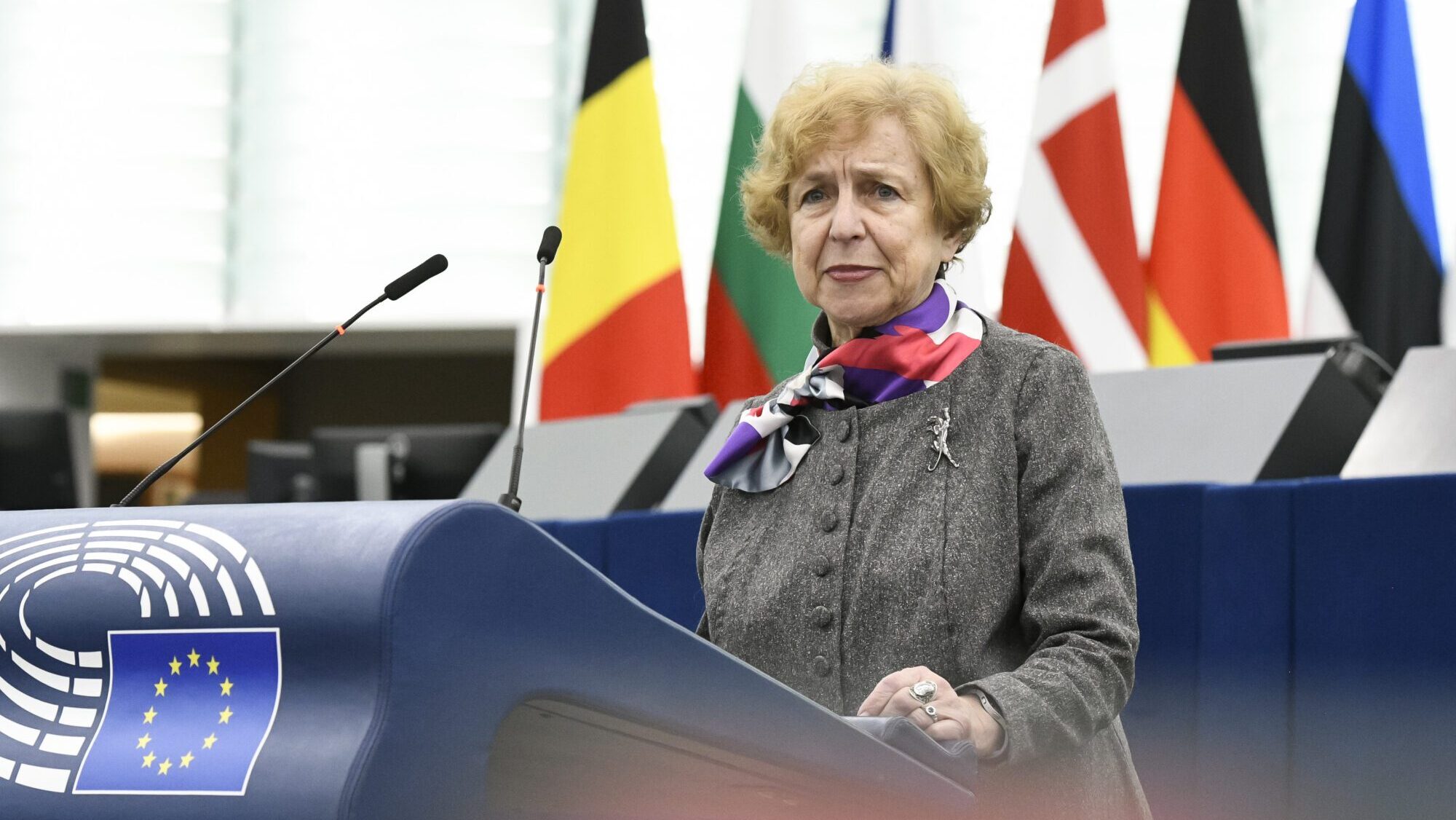
Formerly Greens/EFA MEP Tatjana Ždanoka.
Photo: Genevieve Engel ©European Union 2024 – Source: European Parliament
Three Latvian MEPs have warned about Russian intelligence assets working in the European Parliament after allegations surfaced against an independent MEP, formerly of the Greens/European Free Alliance.
A joint letter from the MEPs, dated Tuesday, January 30th, has prompted the Parliament to launch an official investigation, after The Insider claimed that MEP Tatjana Ždanoka—a Latvian member of the Green party until April 2022—had been working for Russia’s Federal Security Service (FSB), the direct successor of the Soviet-era KGB.
“There are other MEPs … knowingly serving Russia’s interests,” the Latvian trio—comprising Robert Zile (Renew), Ivars Ijabs (ECR), and former foreign minister and EU commissioner Sandra Kalniete (EPP), representing the entire delegations within their groups—wrote in the joint letter obtained by Politico. The socialists (S&D) were the only group with the Latvian parliamentary delegation that did not sign the letter.
According to the report, Ždanoka was “working on behalf of the FSB’s Fifth Service, reporting to two different handlers from at least 2004 to 2017.” The journalists obtained leaked emails between her and the handlers, which include “explicit, detailed reports” that describe her work as “fostering pro-Kremlin sentiment in her native Baltic region.”
As the European Parliament launched its official probe, the MEP denied all allegations in a video posted on her social media. “Unlike many well-known Latvian figures,” she claimed she had never been associated with the KGB and had not “cooperated with any other intelligence agencies either.”
Nonetheless, European Parliament President Roberta Metsola takes the allegations “very seriously,” a spokesman confirmed. The MEP’s immunity, however, prevents her from being kicked out of the Parliament or suspending her voting rights at this point, but the colleagues who signed the joint letter to Metsola urged her to take the appropriate measures as soon as possible.
In March 2022, Ždanoka was one of only 13 members of the European Parliament who refused to condemn the Russian invasion of Ukraine, which eventually led the group to expel her in April 2022. Incidentally, a seven-strong majority of the dissident MEPs were from the far-left group The Left, who might also face scrutiny in this growing espionage scandal.
“It would be intolerable for there to be MEPs on the Kremlin’s payroll working to destroy European democracy from the inside,” Spanish MEP Adrián Vázquez Lázara, the head of the EP’s legal affairs committee, tweeted, asking for a plenary debate on what he calls “RussianGate” next week.
The Latvian members of the Parliament also asserted that Moscow could have many other spies sitting in Brussels and Strasbourg.
“We are convinced that Ždanoka is not an isolated case,” the MEPs said, citing suspicious “public interventions, voting record[s], organized events, as well as covert activities.”
“The Greens/EFA group must bear a degree of responsibility for long-term cooperation, financial support, and informational exchange with Ždanoka,” the letter goes on, saying that the party only expelled the parliamentarian after she voted against condemning Russia, and she had been a member since 2004.
In a statement published on Tuesday, the Greens/EFA group said it was “deeply concerned” about the allegations and distanced itself from Ždanoka, saying that she was part of the group’s EFA faction only, and that “she had no part in forming Group policy on foreign affairs issues including policies related to Russia.”
